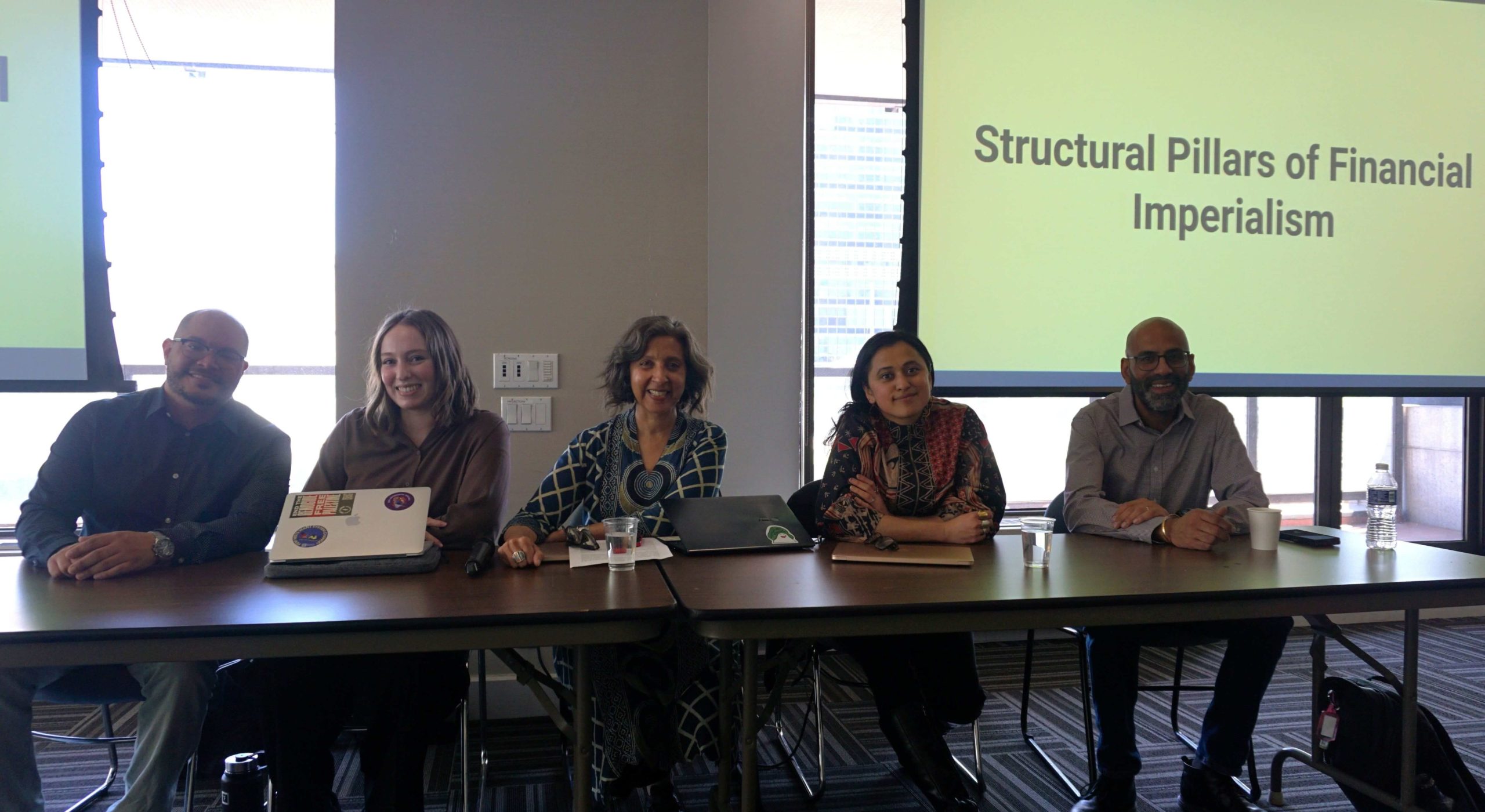This event delved into various structural pillars of financial imperialism and their impacts on the Global South. Held on 29 April, 2025 at the Church Center of the United Nations, speakers included Bhumika Muchhala (Third World Network and The New School), Erica Levenson (Regions Refocus), Francisco Peréz (University of Utah and Center for Economic Democracy), Anita Nayar (Regions Refocus), and Zachariah Mampilly (Baruch College). The event was based on a framework of financial imperialism set out by a forthcoming paper, which was co-authored by some of the speakers and launched on 12 June.
Anita Nayar opened the event by laying out a conceptual framework of financial imperialism. As she explained, colonial histories of plunder and appropriation have under-developed the Global South, resulting in fewer sources of tax revenue and formal employment, smaller and less diversified economic sectors, and dependence on exporting primary commodities to the North. Ongoing imperialism in the global financial architecture has ensured that this under-development remains. Financial imperialism thus refers to the disproportionate power of the wealthiest governments and largest banks and corporations, concentrated in the G7 countries, that has been built into the global financial architecture.
Erica Levenson kicked off thematic analysis of the subject matter by analyzing debt as a pillar of financial imperialism. The historical significance of foreign debt points to a history of exploitation, subjugation, and draining of resources and wealth from colonies that has created sustained wealth for former colonizers. Trade is an important tool that continues this resource drain, as thwarted productive capacities and domestic revenue potential established under colonialism drive dependency on foreign investment and external borrowing. Debt servicing is now equal to developing countries’ combined total spending on health, education, social protection, and climate, and exceeds combined total spending in these areas by 50% in Africa. The current era of financial imperialism is one in which creditors can coerce debtors to repay even in the absence of the physical coercion that defined formal colonialism (i.e., gunboats, military invasion, physical threat of violence).
Continuing with the thematic analysis, Bhumika Muchhala spoke next, focusing on currency hegemony and financialization. As she explained, monetary sovereignty— defined by a state’s legal ability to issue and borrow funds in its own currency, establish its domestic interest rate, and shape its exchange rate policy— remains monopolized by a few rich countries. This monetary power forms the foundation of global financial imperialism. Another way of putting this is that developed countries, with the US in the lead, generate monetary and financial cycles, whereas developing countries endure their impacts. The global currency hierarchy is a result of this foundation, with the US dollar at the apex. Propping it all up is the free movement of capital, dictated by IMF and World Bank loan conditionalities and by bilateral trade and investment agreements, which makes developing countries even more vulnerable to the whims of investors and even less able to autonomously dictate their national policies.
Francisco Peréz and Zachariah Mampilly focused their interventions on what could be done to resist ongoing financial imperialism and what resistance is happening at the grassroots level. Francisco voiced various potential solutions, including returning to Keynes’ vision of an International Clearing Union and Bancor— a global central bank and global currency, respectively. Zachariah emphasized that, despite the increasing NGO-ization of movements, there is significant grassroots organizing going on across the Global South which is closely linked to the structural problems identified by previous speakers. These grassroots movements are grappling with the brunt of the real-world impacts of financial imperialism: missing or defunded public services, attempts by corporations to capture natural resources, and fractures in the social contracts between states and their constituencies.






